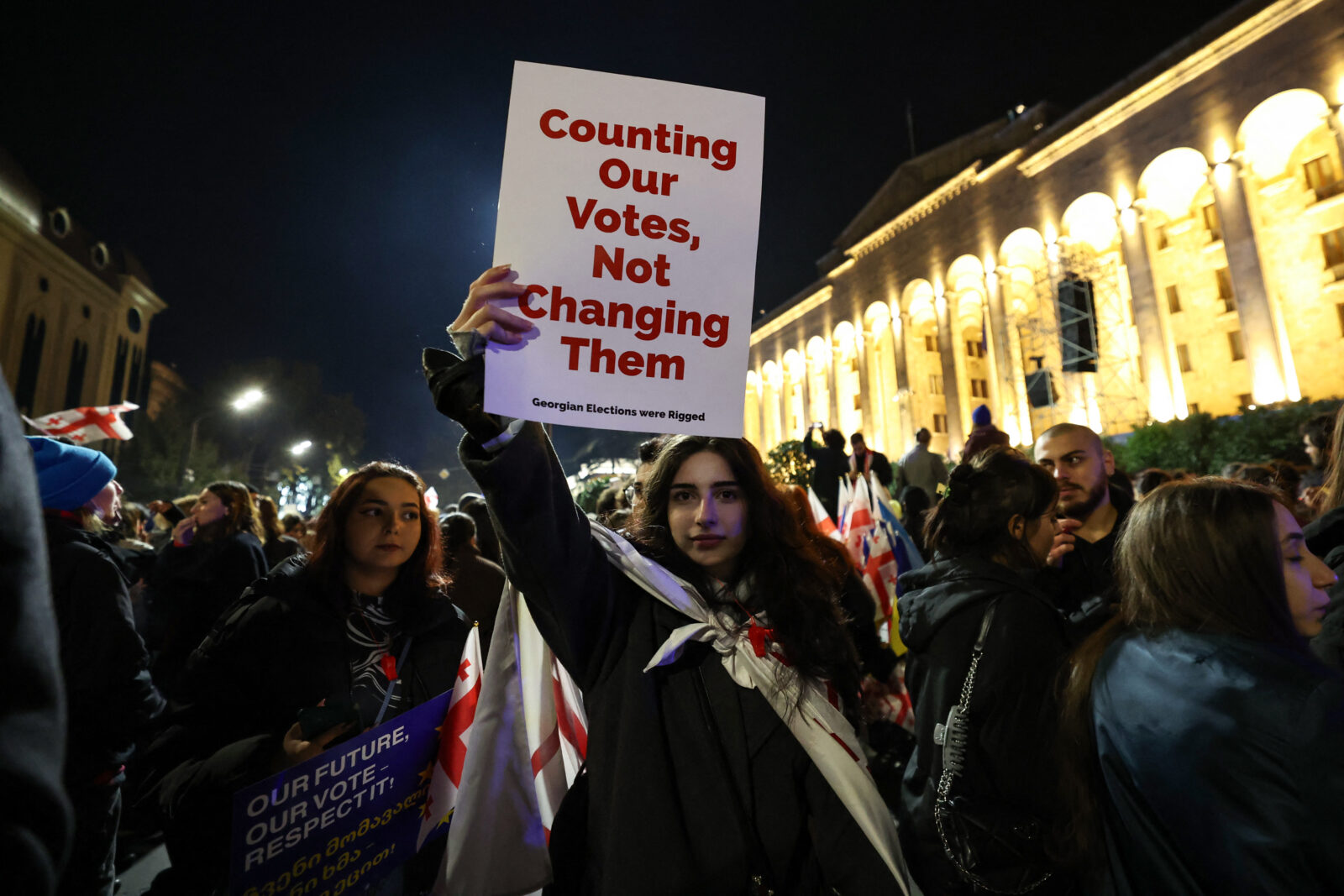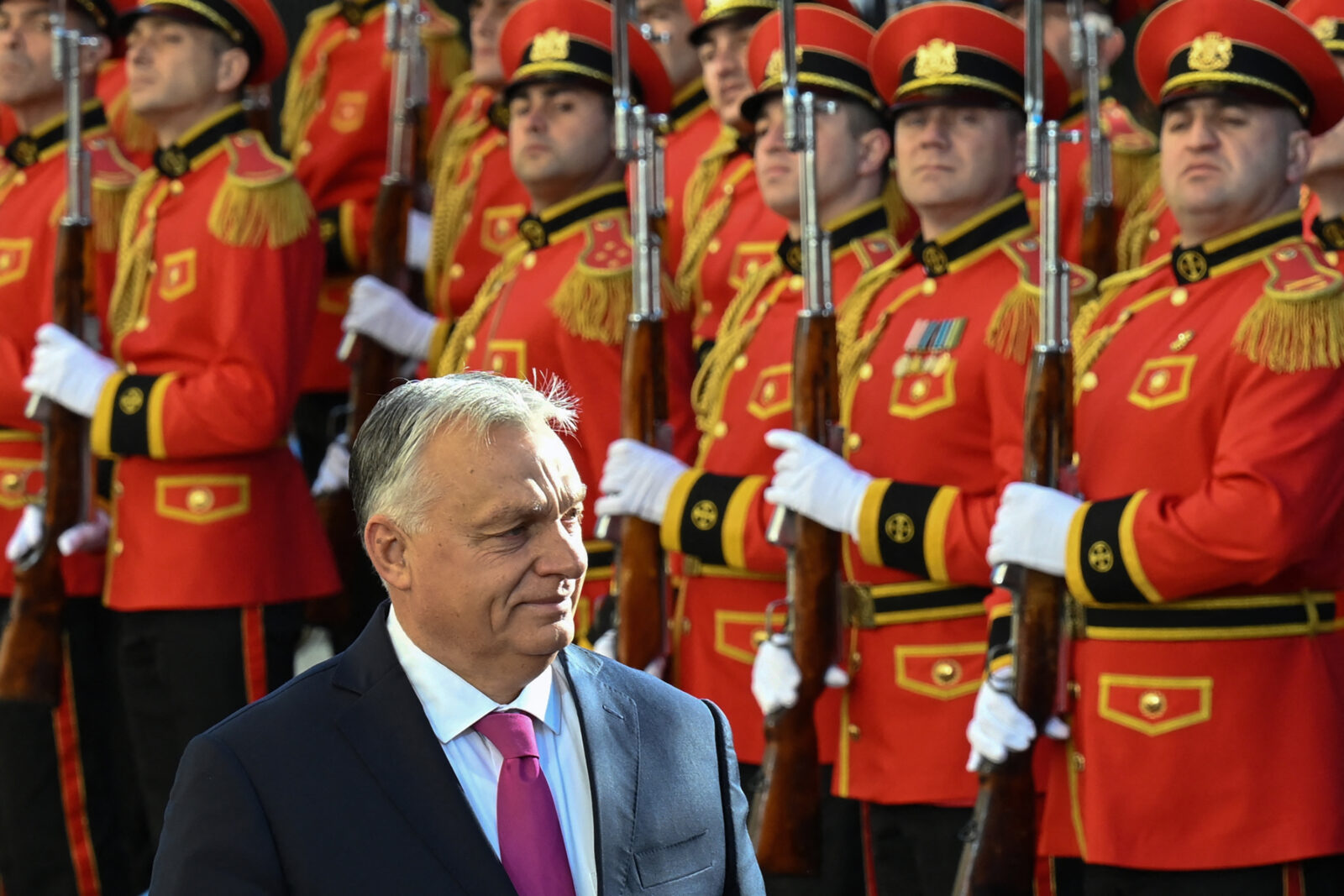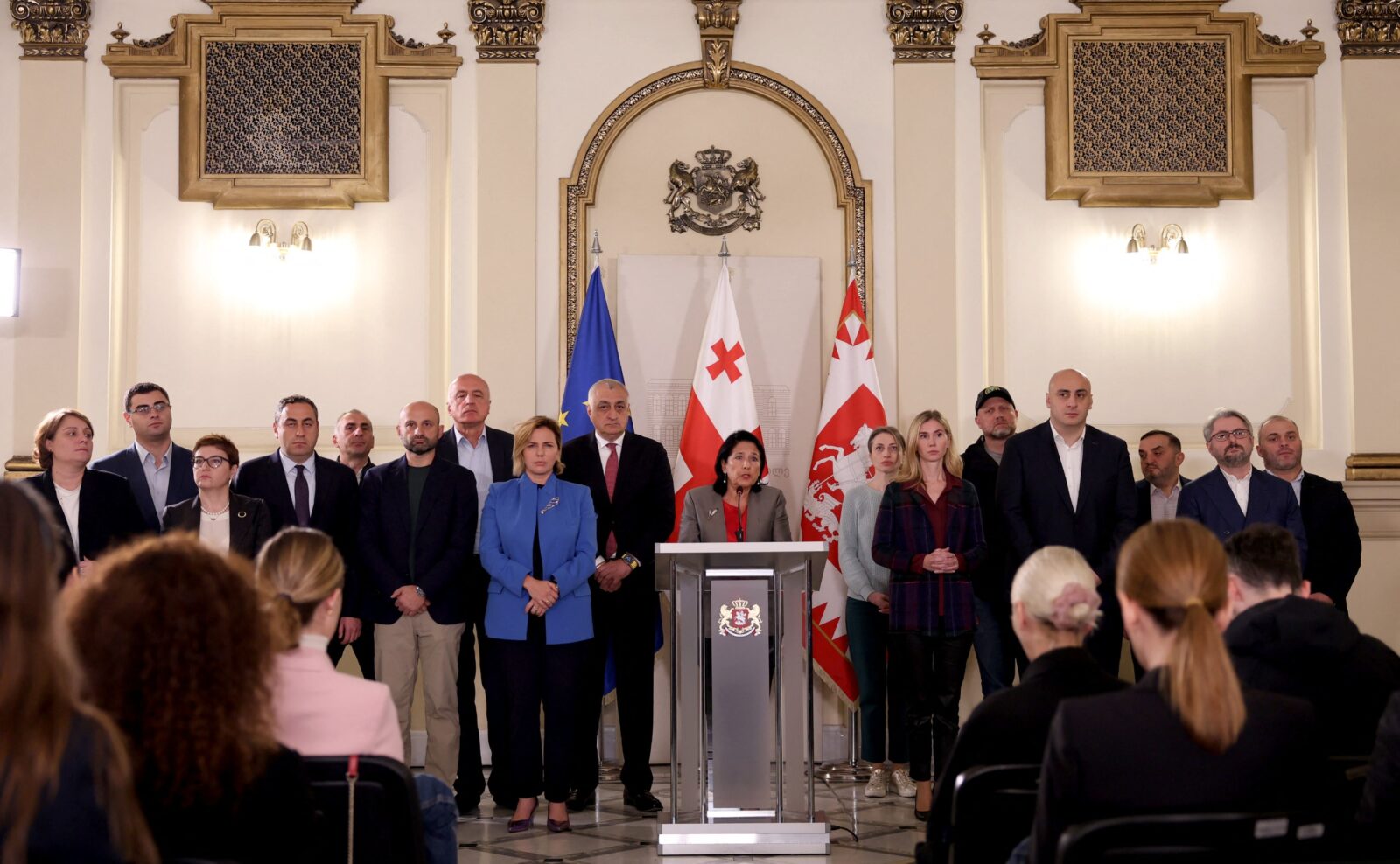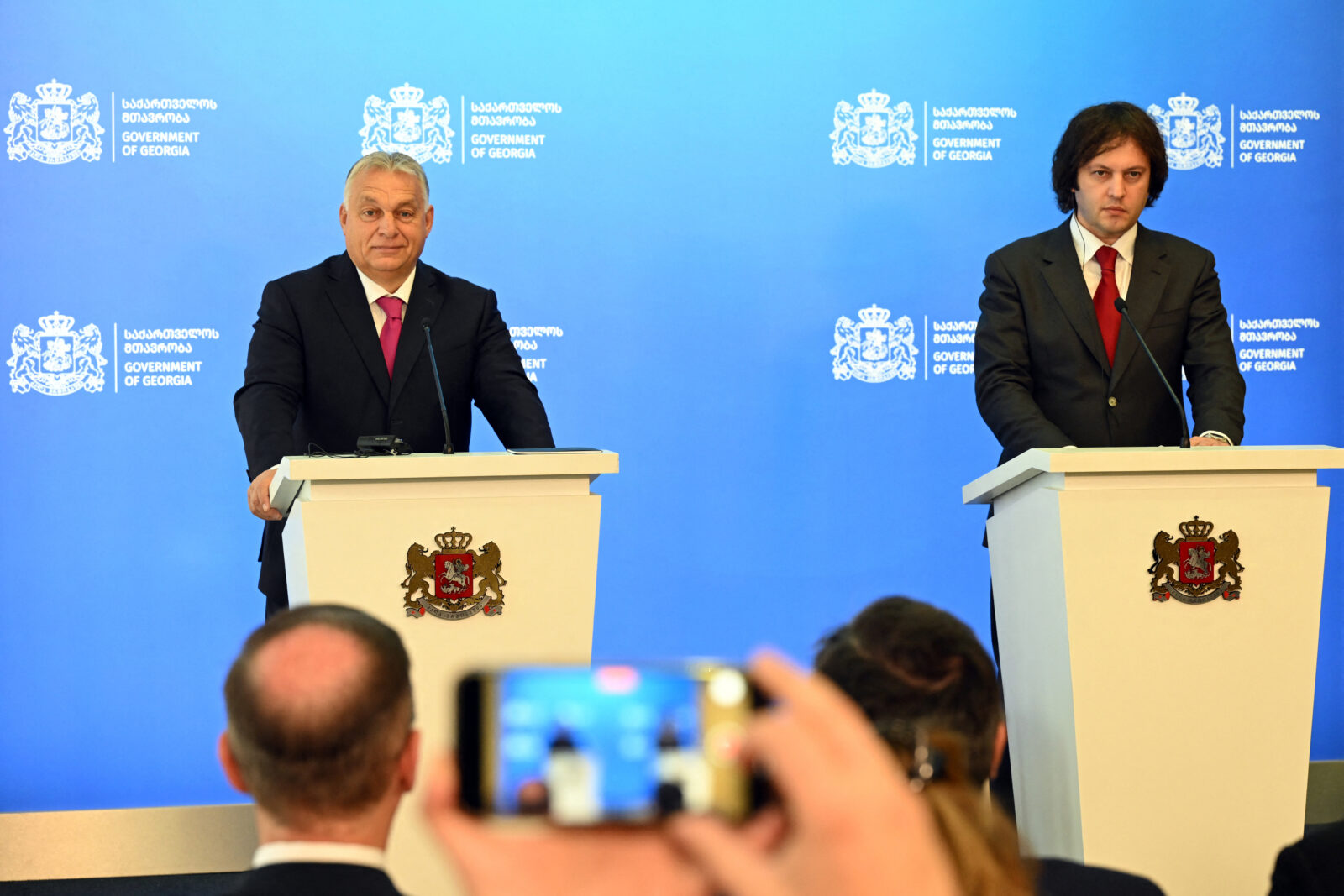Hungary’s PM Orban visits Georgia after disputed election
 Georgian Prime Minister Irakli Kobakhidze and visiting Hungarian Prime Minister Viktor Orban attend a welcoming ceremony at the state chancellery in Tbilisi on October 29, 2024. (AFP Photo)
Georgian Prime Minister Irakli Kobakhidze and visiting Hungarian Prime Minister Viktor Orban attend a welcoming ceremony at the state chancellery in Tbilisi on October 29, 2024. (AFP Photo)
Hungarian Prime Minister Viktor Orban made a surprise visit to Georgia on Monday, just two days after the ruling Georgian Dream party declared victory in a parliamentary election that the opposition claims was marred by irregularities.
Orban’s visit comes amid tensions following the election, which has been widely criticized by opposition leaders and pro-Western factions within Georgia.

Orban congratulates Georgian Dream on election victory
The Georgian Dream party, which secured nearly 54% of the vote according to the country’s electoral commission, has faced accusations of voter manipulation from opposition parties.
Orban, who congratulated the ruling party following their victory, lauded Georgia as a “conservative, Christian, and pro-European state” and urged the country to focus on its European path despite ongoing disputes.
“Instead of useless lecturing, they need our support on their European path,” Orban stated on social media platform X after arriving in Tbilisi.
“One thing is clear about this weekend’s elections: the people of Georgia voted for peace and prosperity in free and democratic elections,” Orban said.

Opposition calls for protests, alleging voting violations
While Georgian Dream maintains that the election was free and fair, opposition leaders have raised concerns about widespread voting irregularities.
They have called for mass protests, framing the election as a choice between pro-Russian ties and European integration. Georgian President Salome Zourabichvili also criticized the election results, calling them a “Russian special operation” and urging Georgians to protest.
“A full picture must emerge of this planned theft-robbing us of votes, parliament, the constitution! We are united-no one will accept these unjust results. Peacefully, we will defend your right to be heard. The voice of the people matters & we will uphold it!” Zourabichvili stated in her social media post.

Orban’s position raises EU concerns
Orban’s visit has drawn criticism from several European Union member states, particularly as Hungary’s leadership has maintained cordial ties with Russia, despite the ongoing war in Ukraine.
Orban’s presence in Georgia was labeled “early” by EU representatives, who questioned the timing of his visit, particularly given the ongoing disputes surrounding the election.
Despite these criticisms, Orban expressed confidence in Georgia’s path toward EU membership, dismissing claims that the Georgian government is distancing itself from European integration.
“Georgia will be ready to join the European Union by the end of this decade,” Orban said during a press conference with Georgian Prime Minister Irakli Kobakhidze.

Opposition protests continue
Meanwhile, protests in Georgia have continued, with opposition leaders and citizens gathering in the capital, Tbilisi, demanding a recount or a fresh election.
The opposition has framed the election as pivotal for Georgia’s future direction, while the ruling Georgian Dream party accuses its opponents of attempting to destabilize the country.



